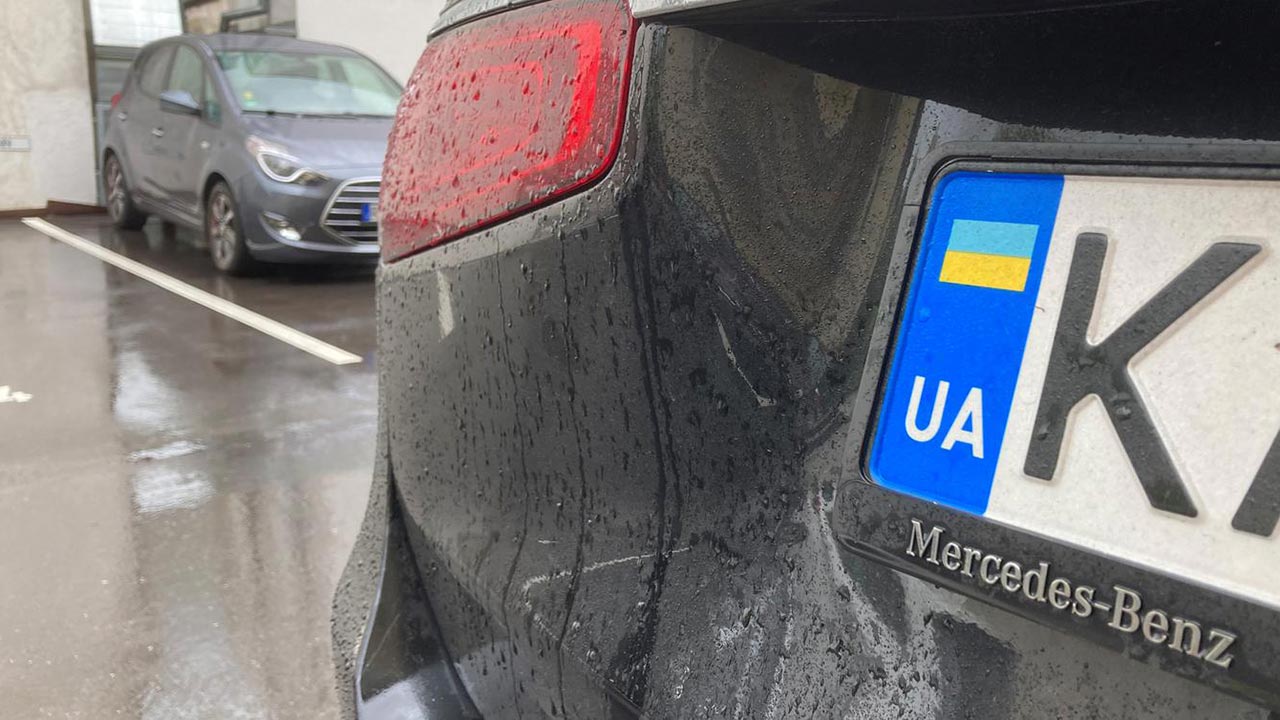Cars will be checked for safety for road users, as well as for compliance with emission standards. At the same time, vehicles will not be checked for compliance with the technical requirements in force in Germany and the EU, as they will continue to be registered in Ukraine," the Ministry of Transport of North Rhine-Westphalia told DW on Friday, 2 June.
Thus, cars from Ukraine will be exempted from the need to provide certificates of compliance with EU technical standards during technical inspections, which has been a big problem for most Ukrainians until now. After all, cars bought in Ukraine are not manufactured for the European market, so obtaining the relevant certificate of conformity in practice turns out to be a complicated procedure for their owners in Germany, sometimes costing hundreds of euros. For some vehicles, such as those imported from the United States, it is sometimes impossible to obtain such a certificate in Europe.
A separate simplified inspection procedure for vehicles with Ukrainian licence plates is provided for in a concept agreed by the Federal Ministry of Transport in cooperation with vehicle inspection organisations. Currently, the ministries of transport of the German federal states are finalising the final text of the rules under which cars of asylum seekers from Ukraine will be able to stay in the country without registration for more than the one-year period provided for by law.
The final text of the rules is expected to be adopted by 9 June. After that, each state will individually adopt and publish the relevant document in a short time. Only after that will the rules come into force, as the issue of car registration in Germany is the responsibility of the federal states.
In April 2024, everyone will be registered
The new rules for cars from Ukraine provide for the extension of the grace period for them until 1 April 2024. There are no plans to extend the exemptions for Ukrainians beyond this period. The current exception is that cars with Ukrainian licence plates are temporarily exempt from §20 of the Federal Government's Regulation on Vehicle Registration (Fahrzeug-Zulassungsverordnung), which requires that cars owned by third-country nationals obtain German licence plates no later than the first year of their stay in Germany.
In order to continue driving in Germany with Ukrainian licence plates, without paying the vehicle tax and without taking out German motor third party liability insurance, Ukrainians need to obtain a permit from the car registration authority (Zulassungsstelle) at their place of residence for an exception to the rule on mandatory car registration in Germany set out in § 20 of the relevant regulation (Ausnahmegenehmigung). Such a permit will be granted if, in addition to a certificate of inspection issued by authorised companies such as TÜV or DEKRA, the driver provides a motor insurance policy for those travelling abroad (Grenzversicherung). "It is the date the car crosses the border, not the owner of the car, that is decisive," the press service of the North Rhine-Westphalia Ministry of Transport said. This state is currently chairing the conference of federal states, so the relevant ministry of this state on behalf of all the states was the first to release information on 31 May that the states had reached a preliminary agreement to extend the grace period for Ukrainian cars in Germany.
Certain state exemptions are no longer valid
The press service of the Ministry of Transport of Lower Saxony, in response to a DW request, said that a separate preferential procedure for Ukrainian cars, adopted several months ago, will be cancelled in this state. It provided that the grace period for Ukrainians would be extended until the spring of 2024 - without the need to undergo technical inspection. As soon as the Länder agree on the details of the new common rules for cars with Ukrainian licence plates, they will be adopted and come into force in this land, the Länder's transport authority said. Thus, cars from Ukraine will have to undergo technical inspection in this state as well.
The federal state of Hesse, which unilaterally extended the grace period for Ukrainian cars until 30 June in the spring, told DW that the common rules agreed with other states will come into force in this state on 1 July. In addition to Hesse, the benefits were previously extended for different periods of time in Brandenburg, Saxony and Saxony-Anhalt. In all of these states, the now agreed extension of the grace period until 1 April 2024 will replace the individual regulations.
Source: DW

